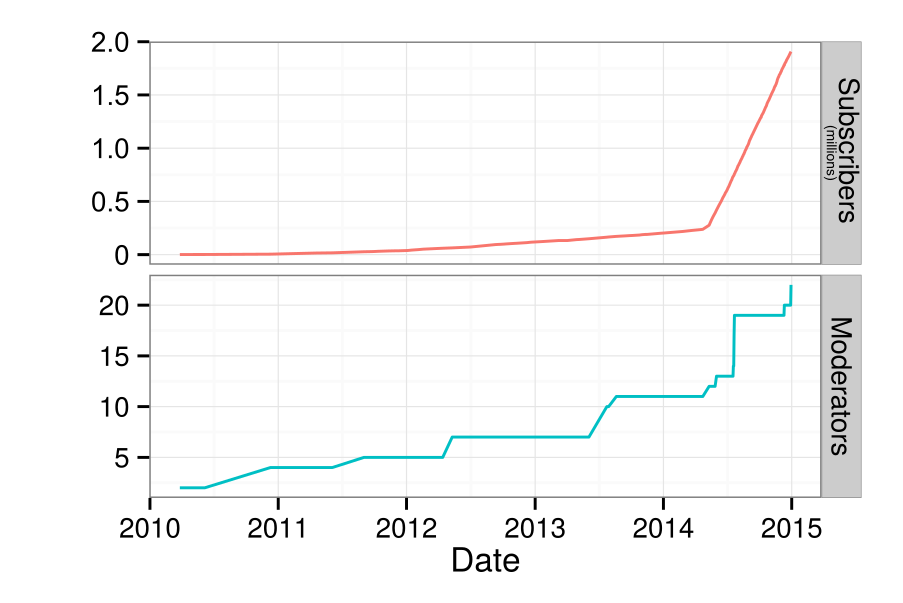
Last year at CHI 2016, we published a qualitative study examining the effects of a large influx of newcomers to the /r/nosleep online community in Reddit. Our study began with the observation that most research on sustained waves of newcomers focuses on the destructive effect of newcomers and frequently invokes Usenet’s infamous “Eternal September.” Our qualitative study argued that the /r/nosleep community managed its surge of newcomers gracefully through strategic preparation by moderators, technological systems to reign in on norm violations, and a shared sense of protecting the community’s immersive environment among participants.
We are thrilled that, less a year after the publication of our study, Zhiyuan “Jerry” Lin and a group of researchers at Stanford have published a quantitative test of our study’s findings! Lin analyzed 45 million comments and upvote patterns from 10 Reddit communities that a massive inundation of newcomers like the one we studied on /r/nosleep. Lin’s group found that these communities retained their quality despite a slight dip in its initial growth period.
Our team discussed doing a quantitative study like Lin’s at some length and our paper ends with a lament that our findings merely reflected, “propositions for testing in future work.” Lin’s study provides exactly such a test! Lin et al.’s results suggest that our qualitative findings generalize and that sustained influx of newcomers need not doom a community to a descent into an “Eternal September.” Through strong moderation and the use of a voting system, the subreddits analyzed by Lin appear to retain their identities despite the surge of new users.
There are always limits to research projects work—quantitative and qualitative. We think the Lin’s paper compliments ours beautifully, we are excited that Lin built on our work, and we’re thrilled that our propositions seem to have held up!
This blog post was written with Benjamin Mako Hill. Our paper about /r/nosleep, written with Mako Hill and Andrés Monroy-Hernández, was published in the Proceedings of CHI 2016 and is released as open access. Lin’s paper was published in the Proceedings of ICWSM 2017 and is also available online.
Discover more from Community Data Science Collective
Subscribe to get the latest posts sent to your email.